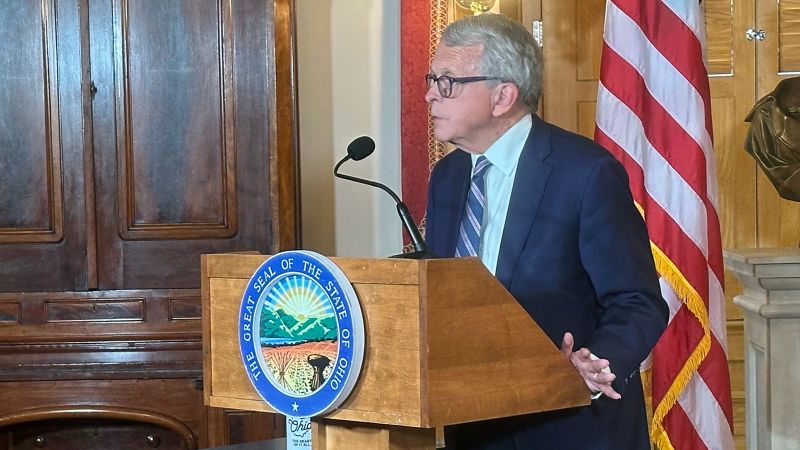Ohio Gov. Mike DeWine has called the state’s Republican-controlled legislature into a special session to address a timing issue that could prevent President Joe Biden from appearing on the state’s general election ballot. The issue stems from the Democratic National Convention taking place after the state’s deadline for parties to submit candidates for the ballot, which could leave Biden off the ballot in Ohio. DeWine described the situation as “ridiculous” and “absurd” and emphasized the importance of Ohioans having the opportunity to vote for major party candidates for president and other offices.
In Ohio, the certification deadline issue preventing Biden from appearing on the ballot has also become entangled with a separate issue of foreign spending on Ohio ballot measures. The special session of the state legislature would not only address the timing problem but potentially pass a bill to prevent foreign spending, which Democrats oppose. Similar issues were faced in Republican-controlled Alabama, where legislation was enacted to push out the certification deadline and allow Biden to be on the ballot. Ohio officials have stated they will not accept provisional certification, making the path forward less clear.
Overall, Ohio has shifted to the right in recent years, with Donald Trump winning the state by 8 points in both the 2016 and 2020 elections. Ohio Sen. Sherrod Brown, the only Democrat in nonjudicial statewide office, is facing a challenging reelection campaign. The state’s designation as a pivotal swing state has given way to a more solid Republican stronghold. However, ensuring that Biden is on the ballot in Ohio is a crucial issue for DeWine and state officials, as they work to resolve the timing conflict and allow Ohio voters to have a say in the upcoming election.
The situation in Ohio highlights the complexities surrounding election certification timelines and the impact they can have on the democratic process. In recent years, issues of timing have been quietly resolved through legislative action or acceptance of provisional certifications. However, the specific requirements in Ohio regarding the submission of candidates’ names 90 days before the general election have presented a unique challenge. DeWine’s decision to call a special session of the legislature underscores the urgency of the situation and the need to find a solution that allows all eligible candidates to be on the ballot in Ohio.
The upcoming special session of the Ohio legislature will be pivotal in determining whether Biden can appear on the state’s general election ballot. Addressing the certification deadline issue is crucial to ensuring that Ohio voters have a choice in the presidential election, as well as in other key races. The resolution of this timing problem will not only impact the upcoming election but also serve as a test of Ohio’s electoral processes and the ability of state officials to adapt to unique challenges. DeWine’s insistence on finding a solution reflects a commitment to upholding the democratic principles of fair and inclusive elections, despite the partisan dynamics at play in the state legislature.
In conclusion, the special session called by Gov. DeWine in Ohio highlights the critical importance of resolving timing issues that could affect candidates’ eligibility to appear on the ballot. The situation underscores the need for clear and flexible election laws that allow for the smooth operation of the democratic process. As Ohio navigates the complexities of certification deadlines and legislative fixes, the outcome will have significant implications for the state’s electoral landscape and the ability of Ohio voters to participate fully in the upcoming election. By addressing these challenges head-on, state officials can uphold the integrity of the electoral system and ensure that all eligible candidates have a fair chance to compete for office.


